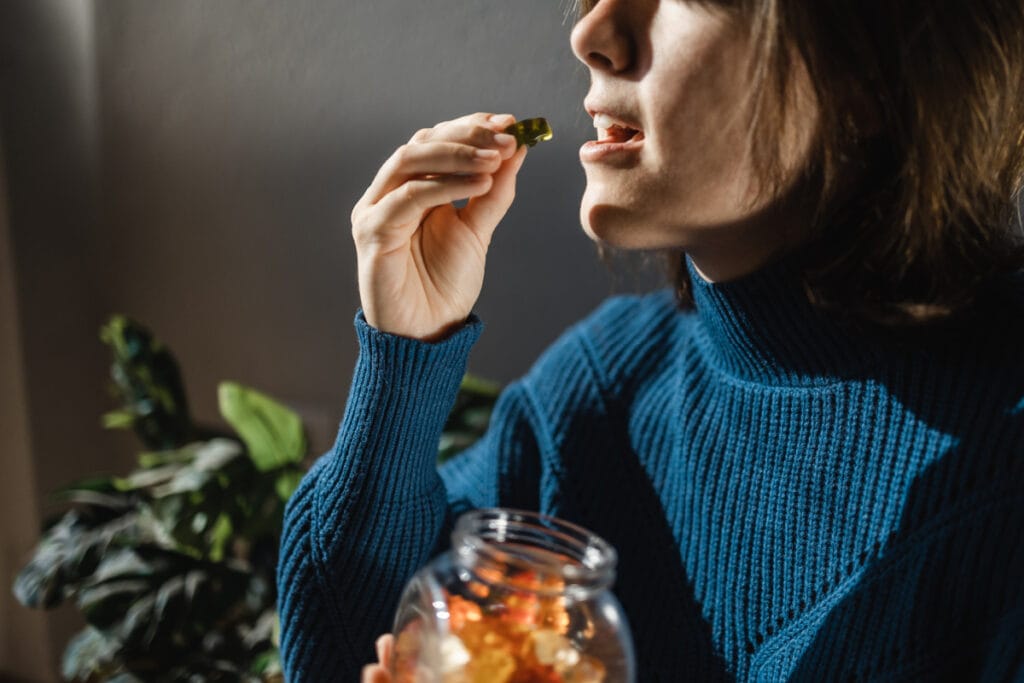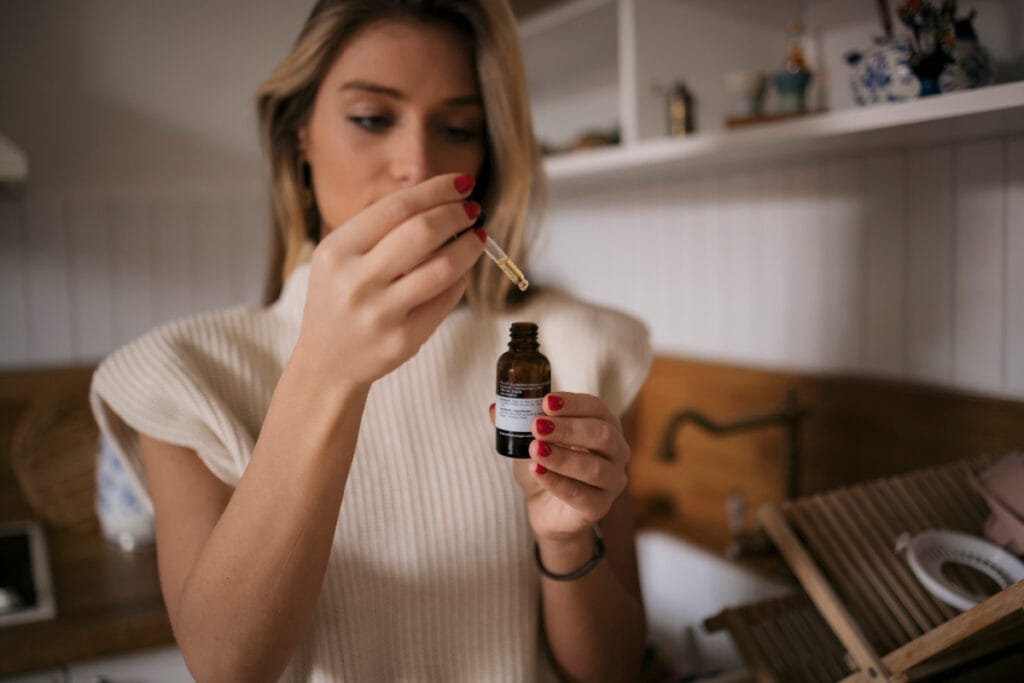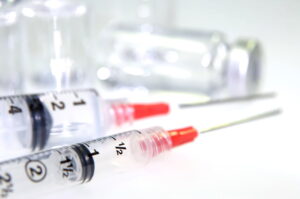Many patients, whether they are regular users or are considering marijuana for pain management, are curious about how cannabis might impact their cosmetic surgery experience. Below, our California cosmetic surgeons address some of the most frequently asked questions about cannabis use and aesthetic surgery procedures.
Can I use cannabis before my surgery?
No, it is not safe to use cannabis in any form before your surgery. Cannabis, especially when smoked, can affect your airways and lung function, making it more difficult to place a breathing tube and increasing the risks of other anesthesia complications. The psychoactive component in cannabis (THC) can interact with anesthesia and potentially lead to unpredictable effects, particularly when your anesthesia is wearing off. THC can also cause the body to break down anesthesia medications faster than normal and require your anesthesiologist to administer high doses of the medicine for proper sedation and pain control.
To ensure your safety, please avoid all cannabis use at least four weeks before your surgery. This allows enough time for the substances to clear from your system and minimize any risks associated with anesthesia and surgical recovery.
Cannabis burns at a higher temperature than tobacco and may cause more acute airway irritation than regular cigarettes.
Will smoking marijuana affect my recovery?
Yes, smoking marijuana can make it harder for your body to heal after surgery, as can using cannabis products in other forms.
Smoking reduces oxygen levels in the blood, which you need for wound healing, and a lack of oxygenated blood can also increase the risk of other health complications. Delayed wound healing leaves you vulnerable to infection and extends your recovery period and may even impact your results.
THC can also affect blood platelets and potentially limit your body’s blood clotting abilities. Poor blood clotting can cause excessive bleeding during and after surgery.
Share any cannabis use with our cosmetic surgeons so we can make a plan together
If you need to use cannabis for medical reasons, talk with your cosmetic surgeon about the possibility of switching to a non-smoking method of cannabis consumption, such as edibles. In all cases, cannabis consumption must be cleared with one of our cosmetic surgeons during your medical evaluation in the initial consultation, before choosing a surgical date.
What about vaping—does it carry the same risks as smoking weed before surgery?
Vaping is not a safer alternative to smoking. This method has been associated with lung injuries and respiratory issues, which can complicate both your procedure and recovery. Please avoid vaping for at least four weeks before and after your surgery to reduce any potential risks.
“Very satisfied with the result of my procedure. My overall experience was amazing and everyone made me feel very comfortable, calm and collected before and after my procedure.”

Can I use cannabis for pain management after my surgery?
While cannabis has been shown to help manage certain types of pain, it is not an effective pain management method after surgery. Research indicates that THC can actually increase your sensitivity to pain. In fact, some studies suggest that cannabis may increase pain levels: patients who used cannabis after surgery required more opioid pain medication than those who didn’t use cannabis.
Does CBD have the same effects as THC when it comes to surgery?
CBD, or cannabidiol, is a non-psychoactive component of cannabis and has more of a sedating effect versus the mind-altering effects of THC. While some patients find CBD or other cannabinoids helpful for reducing mild anxiety and chronic pain, its effects on surgical outcomes are not well-studied. Third-party testing has also reported that many products that advertise being “pure” CBD oil still contain high levels of THC. Let your surgeon know if you use CBD products so they can guide you on how long to pause its use in any form before and after surgery.
It’s crucial your anesthesiologist is informed about your cannabis use so they can adjust your anesthesia plan accordingly. It can take 10x the medication to put a patient who uses cannabis under anesthesia.
What are the alternatives to cannabis for managing pain after surgery?
Alternatives to marijuana after surgery include prescription pain medications, over-the-counter pain relievers like acetaminophen or ibuprofen, and non-drug approaches such as cold therapy, heat therapy, and relaxation techniques. Other complementary medications, such as muscle relaxers, may also be prescribed to improve comfort after surgery.
At Inland Cosmetic Surgery, your safety and comfort are our priority—we don’t want you to be in pain! We have several pain relief options to use before, during, and after surgery to keep you as comfortable as possible. We tailor each recovery plan to align with your comfort preferences and medical needs.
What should I do if I accidentally consume cannabis before my surgery?
If you accidentally consume cannabis before your surgery, please give us a call as soon as possible. There’s no need to be embarrassed or try and hide it—we can adjust your care plan to account for any potential effects of cannabis to safely move forward with your procedure.
About Inland Cosmetic Surgery in Rancho Cucamonga, California
If you have more questions about cannabis use and how it might affect your surgery, our team at Inland Cosmetic Surgery is here to help. Our cosmetic surgeons Dr. Jacob Haiavy and Dr. Emma Ryan are available for in-person or virtual consultations to discuss your concerns and guide you through a safe surgical experience. Call our Rancho Cucamonga office today at 909-987-0899 or contact us online to schedule your consultation.
References »
Doucet V, Islur A. Marijuana Use in Aesthetic Surgery Patients: A Retrospective Review of 441 Cases. Aesthet Surg J Open Forum. 2024 Apr 12;6(Suppl 1):ojae007.025. doi: 10.1093/asjof/ojae007.025. PMCID: PMC11013355.
Lu YH, Mahajan L, Rudy H, Yan Y, Ricci JA. The Impact of Marijuana Use on Postoperative Outcomes in Abdominal-based Free Flap Breast Reconstruction. J Reconstr Microsurg. 2024 Mar 28. doi: 10.1055/a-2277-0117. Epub ahead of print. PMID: 38413008.
Teven, Chad M. M.D.; Song, David H. M.D., M.B.A.. Times Are a Changin’: Marijuana Use among Plastic Surgery Patients. Plastic and Reconstructive Surgery 148(4):p 702e-704e, October 2021. | DOI: 10.1097/PRS.0000000000008380.
Alexander JC, Joshi GP. A review of the anesthetic implications of marijuana use. Proceedings (Baylor University Medical Center). 2019 May 21;32(3):364-371. doi: 10.1080/08998280.2019.1603034.
Bicket MC, Ladha KS, Boehnke KF, Lai Y, Gunaseelan V, Waljee JF, Englesbe M, Brummett CM. The Association of Cannabis Use After Discharge From Surgery With Opioid Consumption and Patient-reported Outcomes. Annals of Surgery. 2024 Mar 1;279(3):437-442. doi: 10.1097/SLA.0000000000006085.
Mamas, M, Lamelas, P. Marijuana Use: A New Risk Factor for Periprocedural Bleeding? JACC: Cardiovascular Interventions. 2021 Aug, 14 (16) 1768–1770.
Mack A, Joy J. Marijuana as Medicine? The Science Beyond the Controversy. Washington (DC): National Academies Press (US); 2000. 4, MARIJUANA AND PAIN.
Lachenmeier DW, Habel S, Fischer B, Herbi F, Zerbe Y, Bock V, Rajcic de Rezende T, Walch SG, Sproll C. Are adverse effects of cannabidiol (CBD) products caused by tetrahydrocannabinol (THC) contamination? F1000Res. 2019 Aug 8;8:1394. doi: 10.12688/f1000research.
You must be logged in to post a comment.




